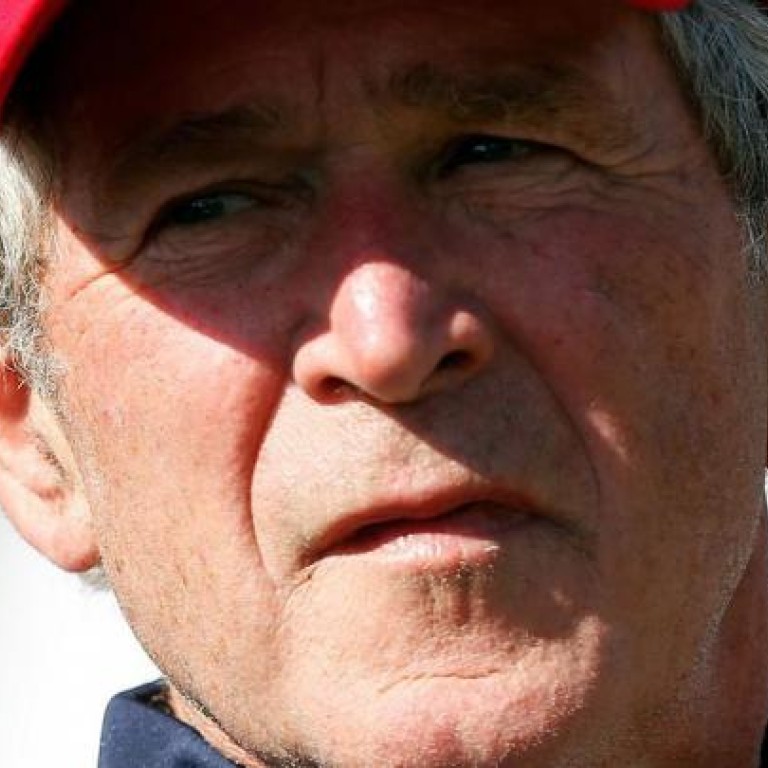
How ex-president George W. Bush is shaping race for the White House
Former president plays key role in shaping fortunes of both candidates
He does not speak on the stump or appear in television ads. Campaign audiences rarely hear his name.
But aside from Barack Obama and Mitt Romney, no one has shaped the 2012 election more than George W. Bush - on the economy and on the foreign policy issues in the spotlight during the final presidential debate on Monday.
For Romney, the battered reputation of Bush, the last Republican president, represents a burden to minimise in a tight race for the White House. The two have not appeared together this year.
When an audience member asked about Bush in last week's second presidential debate, Romney separated himself from what he characterised as Bush's shortcomings on the budget deficit and on trade with China.
For Obama, Bush's economic record offers a shield against voters' wrath over high unemployment and slow growth .
Obama benefits, too, from Americans' weariness with the long wars in Iraq and Afghanistan, which Bush initiated.
By winding them down - and by succeeding where Bush failed in hunting down Osama bin Laden - Obama has lately won higher marks from voters on foreign policy than on his job performance overall. "He hardly ever comes up in focus groups," said a top campaign adviser for Bush.
When voters think about the Republican Party's identity today, they are more likely to point towards the tea party movement.
But because of Bush, the adviser said, voters give Obama "a great deal of slack" in assigning blame for the weak economy.
"I just don't see how Obama could have survived these economic conditions without that history," said Stan Greenberg, a Democratic pollster.
Obama casts Romney's policies as like Bush's but as even further to the right, on taxes, regulation and a predilection for military confrontation with other countries.
He generally does not mention Bush's name, to avoid the appearance of trying too hard to pass blame to his predecessor.
"The issue isn't to relitigate the Bush years," said David Axelrod, the president's political strategist. "It's to make the case that we shouldn't relive them."
Romney has the tricky task of trying to mobilise the same conservative Republicans who backed Bush while casting his policies as a departure.
With Democrats saying his economic plan is like Bush's tax cuts of 2001 and 2003 "on steroids", Romney says his tax proposal is "not like anything that's been tried before" because it couples rate reductions with the elimination of some deductions. "President Bush and I are different people, and these are different times," Romney said in the debate last week.
On trade, he said: "I'll crack down on China. President Bush didn't." On the deficit, he said: "I'm going to get us to a balanced budget. President Bush didn't."

